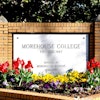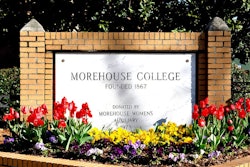Grappling With the Gender Disparity Issue
With women now making up more than half of undergraduate student populations,colleges are looking for a few good men
By Ernest Holsendolph
The young lady seeking admission to Ohio’s Kenyon College was a student leader, had taken advanced placement classes in high school, had earned entry into a prestigious Kentucky leadership program and still managed to accumulate more than 300 hours of community service in four different organizations. The only problem — she wasn’t the right sex.
“Had she been a male applicant, there would have been little, if any, hesitation to admit her,” wrote Kenyon dean of admissions Jennifer Delahunty Britz in an op-ed piece for The New York Times in March. “The reality is that because young men are rarer, they’re more valued applicants.” The article was in effect a mea culpa to highly qualified female applicants who miss the cut as selective schools try their best to fashion a balanced freshman class.
The simple fact at the majority of colleges and universities nationwide is that more women are applying than men. Nationally, 56 percent of undergraduates are female. In the minds of many higher education officials, the gender imbalance could damage the marketability of colleges, especially for small, highly competitive liberal arts colleges like Kenyon.
Part of the fear is that colleges could become labeled as “girls schools,” prompting male students to look elsewhere. Also, students may prefer to attend schools where they’ll have more opportunities to interact with the opposite sex. This “dance partner” issue, officials say, is serious business.
Roderick J. Harrison, a demographer with the Joint Center for Political and Economic Studies, says the gender inequity in college enrollment has serious consequences.
“Longer term, it means that in a period when women and African-Americans should expect expanding job opportunities, Black men will simply not be prepared to take advantage of them,” Harrison says, adding that men are more likely than women to hold the misguided notion that they can find good employment without a college education.














